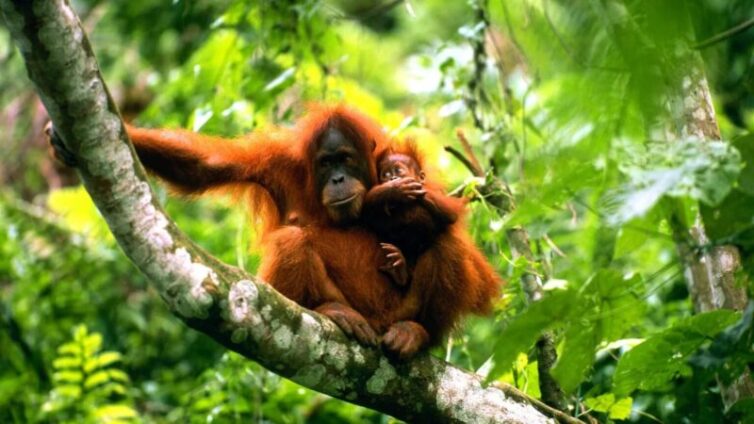Human activity is continuing to drive what conservation charity the World Wide Fund for Nature (WWF) calls a "catastrophic" loss of species.
From elephants in tropical forests to hawksbill turtles off the Great Barrier Reef, populations are plummeting, according to a stocktake of the world's wildlife.
The Living Planet Report, a comprehensive overview of the state of the natural world, reveals global wildlife populations have shrunk by an average of 73% in the past 50 years.
The loss of wild spaces was "putting many ecosystems on the brink", WWF UK head Tanya Steele said, and many habitats, from the Amazon to coral reefs, were "on the edge of very dangerous tipping points".
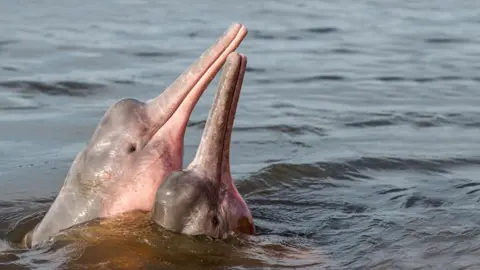
The report is based on the Living Planet Index of more than 5,000 bird, mammal, amphibian, reptile and fish population counts over five decades.
Among many snapshots of human-induced wildlife loss, it reveals 60% of the world's Amazon pink river dolphins have been wiped out by pollution and other threats, including mining and civil unrest.
It also captured hopeful signs of conservation success.
A sub-population of mountain gorillas in the Virunga Mountains of East Africa increased by about 3% per year between 2010 and 2016, for example.
But the WWF said these “isolated successes are not enough, amid a backdrop of the widespread destruction of habitats”.
Tom Oliver, professor of ecology at the University of Reading, who is unconnected with the report, said when this information was combined with other datasets, insect declines for example, "we can piece together a robust - and worrying - picture of global biodiversity collapse”.
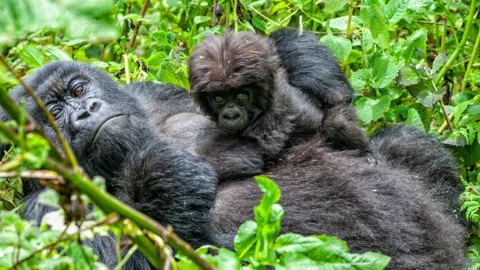
The report found habitat degradation and loss was the biggest threat to wildlife, followed by overexploitation, invasive species, disease, climate change and pollution.
Lead author and WWF chief scientific adviser Mike Barrett said through human action, "particularly the way that we produce and consume our food, we are increasingly losing natural habitat”.
The report also warns nature loss and climate change are fast pushing the world towards irreversible tipping points, including the potential "collapse" of the Amazon rainforest, whereby it can no longer lock away planet-warming carbon and mitigate the impacts of climate change.
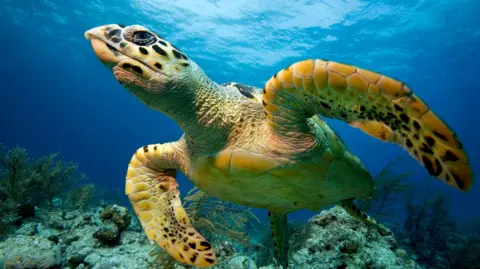
"Please don't just feel sad about the loss of nature," Mr Barrett said.
"Be aware that this is now a fundamental threat to humanity and we've really got to do something now.”
Valentina Marconi, from the Zoological Society of London’s Institute of Zoology, told BBC News the natural world was in a "precarious position" but with urgent, collective action from world leaders "we still have the chance to reverse this".
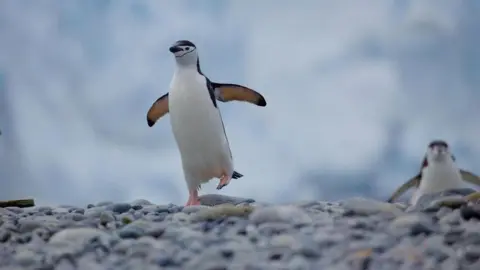
This alarm call for the planet's wildlife comes as world leaders prepare to gather for the United Nations Biodiversity Conference, in Colombia, to discuss how to restore nature.
Almost 200 countries have committed to a landmark 2022 UN agreement to tackle nature loss, including setting aside 30% of the planet for nature by 2030.
The UK has signed up to the pledge, with the foreign secretary announcing the climate issue and decline in nature would be "central" to government policy.
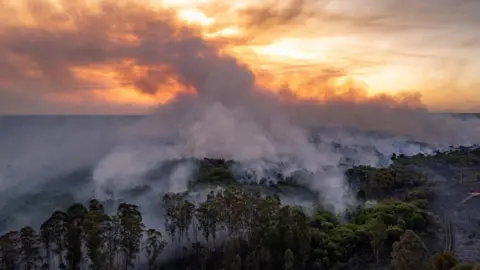
Ms Steele said the report was an "incredible wake-up call".
"Healthy ecosystems underpin our health, prosperity and wellbeing," she told BBC News.
"We don't think this sits on the shoulders of the average citizen - it's the responsibility of business and of government.
"We need to look after our land and our most precious wild places for future generations."
Latest Stories
-
Video: Hitz FM’s Rep Ur Jersey ends in style as fans jam to afterparty beats
6 hours -
Hitz FM’s Rep Ur Jersey turns electric as PSG thrashes Inter 5–0 in Champions League showdown
6 hours -
PSG thrash Inter Milan to win first-ever Champions League title
6 hours -
Aviation Social Centre packed as UCL Finale kicks off at Hitz FM’s Rep Ur Jersey
8 hours -
Photos: Fans win big at ‘Rep Ur Jersey’ as sponsors reward game participants with exciting prizes
8 hours -
Australia to increase contribution to UN Peacebuilding Fund to $15m annually – High Commissioner
8 hours -
Dr. Angela Dwamena-Aboagye named MTN Hero of Change for championing women and children’s rights
8 hours -
From Morocco to Botswana – Africans turn to trusted media and experts for climate change information
9 hours -
Mahama announces Labour Export Programme
9 hours -
Prof. Peter Atudiwe Atupare appointed Dean of University of Ghana School of Law
9 hours -
Goldbod is already doing wonders – Mahama praises CEO Sammy Gyamfi
10 hours -
Mahama promises attractive cocoa price in August, pledges 200,000 hectare boost to sector
10 hours -
UHAS Council Chairman Prof. Kodzo Gavua urges graduates to serve with passion, integrity, and innovation
11 hours -
Dr. Charisa Ogbogbo becomes first female professor in Mathematical Sciences at UG
11 hours -
Communication Ministry assures data price cuts as TELCOS prepare to reduce costs soon
12 hours

